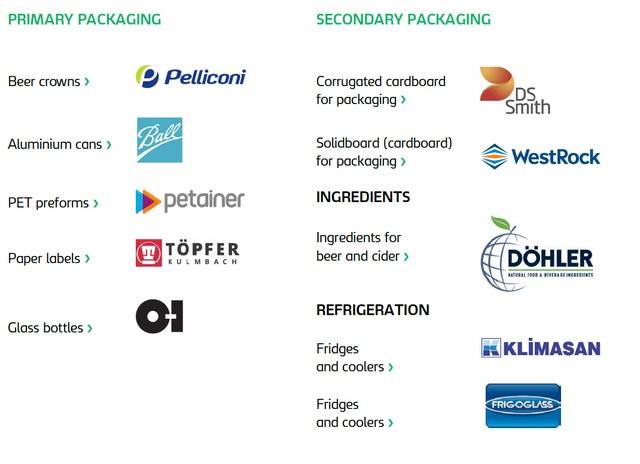Thank you for visiting the Finch & Beak website. Finch & Beak is now part of SLR Consulting, a global organization that supports its clients on setting sustainability strategies and seeing them through to implementation.
This is an exciting time for us, as our team now includes an array of new colleagues who offer advisory and technical skills that are complementary to our own including Climate Resilience & Net Zero, Natural Capital & Biodiversity, Social & Community Impact, and Responsible Sourcing.
We would like to take this opportunity to invite you to check out the SLR website, so you can see the full potential of what we are now able to offer.
Nevertheless, to date the number of reported successful sustainability partnerships is low. Less than half (47%) of all of businesses are actively engaged in sustainability-related partnerships, of which the majority (61%) of those companies assesses their collaborations as “quite” or “very” successful.¹ The good news is that the amount of sustainability programs based on partnering as a key feature is rising, since addressing complex societal issues such as climate change, ocean plastics and child labor is almost unthinkable without partnering.
In 2017, Danish brewer Carlsberg devised its ambitious new sustainability program that was entirely centered around collaboration. The program – Together Towards ZERO – was constructed based on four fundamental ambitions: zero carbon footprint, zero water waste, zero irresponsible drinking and a zero-accident culture. Each of the four ambitions was underlined by intermediate targets for 2022 and final 2030 targets that were connected to Carlsberg’s most material Sustainable Development Goals. In its Sustainability Report 2019, Carlsberg reported good progress towards achieving its ambitions, but recognized that on water it needs to accelerate performance to achieve its zero water waste target.
As the program name suggests, Carlsberg is betting on innovative partnerships to make the sustainability strategy work, since much of Carlsberg’s impact occurs in other stages of the product life cycle. For instance, only 14% of the brewer’s greenhouse gasses were emitted during the brewing process, while 17% could be attributed to agriculture and as much as 40% to packaging. Therefore, innovation is sourced from the entire value chain, which means working hand in hand with suppliers and other business partners.
"Partnership is very, very important for us… we can learn from other industries; we would like to collaborate with others."
- Professor Flemming Besenbacher, Chairman of the Supervisory Board at Carlsberg A/S
Next to an uncompromising focus on energy efficiency across their breweries, Carlsberg has set a target to have 30 partnerships in place in order to reduce shared carbon footprint by 2022. This focus has resulted in some exciting examples. For instance, the World Economic Forum heralded Carlsberg’s Snap Pack packaging innovation, which replaces the plastic wrapping used around Carlsberg’s six packs with a pioneering technology that glues its cans together. The new Snap Pack, a world first for the beer industry, is touted to reduce the amount of plastic used in traditional multi-packs by up to 76%.

To further tackle emissions from packaging, Carlsberg formed specific partnerships with 10 suppliers in 2019, aimed at reducing shared carbon footprint. These suppliers will disclose detailed carbon information with Carlsberg about the products and services they supply, in order to enable collaboration and the joint achievement of targets. Furthermore, carbon reduction roadmaps will be drawn up towards the 2022 and 2030 targets, accompanied by commitments such as adopting approved science-based targets. A total of 110 of Carlsberg's suppliers already have science-based targets in place, a high representation out of only 732 companies across the globe who have done so.
Recent research from IMD business school in Lausanne stresses the importance of focus and long-term planning for the development of successful sustainability strategies. In order to get the best result, companies are to implement a combination of direction and speed as already applied by sustainability leaders such as Unilever and Patagonia.
In order to support increased visioning for sustainability as well as the development of long-term partnerships, the book also contains a freely downloadable tool call “Plotting the Future”. The tool facilitates the development of a high-level roadmap for the implementation planning of a company’s sustainability strategy. It is based on back-casting, a technique that starts by projecting a future objective on a time horizon and then planning backward towards the present.
Way more collaboration is required if we are to come close to achieving our global 2030 targets. The example of Carlsberg illustrates that turning partnering into a main feature of the sustainability strategy can deliver great results. Partnering is not a short-term game. Strategic partnerships for sustainability seldomly come to live without a considerable amount of long-term planning and visioning. In their own words: “In pursuit of better. And not just better beer. We brew to create a better future for all of us.”
Winning Sustainability Strategies (Palgrave 2018, Leleux and Van der Kaaij) presents numerous award-winning cases from IMD business school and examples from companies such as DSM, Unilever, Torres, Patagonia, Tumi and Umicore alongside original ideas based upon 20 years of consulting experience. Based upon practitioner cases and data analysis from the Dow Jones Sustainability Index, the book offers practical suggestions for improved effectiveness of sustainability strategies. This includes designing and executing new sustainability programs, embedding the SDGs within company strategy and assessing the impact of sustainability programs on competitiveness and valuation. Offering directions for CFOs to shift companies from integrated reporting to integrated thinking in order to accelerate their sustainability programs, Winning Sustainability Strategies shows how to achieve purpose with profit and how to do well by doing good.
¹Kiron, D., Kruschwitz, N., Reeves, M., et al. (2015) Joining forces: collaboration and leadership for sustainability.Cambridge, MA: Sloan Management Review Association, MIT Sloan School of Management.
Finch & Beak
hello@finchandbeak.com
+34 627 788 170